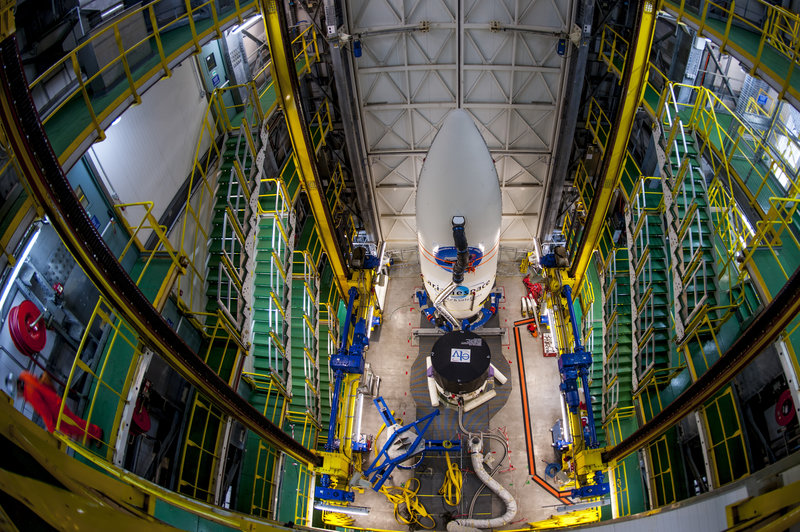Kourou, French Guiana
Photo: European Space Agency
The new European 'Space Shuttle'
Once upon a time, there was something called a “Cold War” with two main contenders, the US and the USSR. Instead of fighting a traditional war, they had fun threatening each other with nuclear weapons and antagonising each other at the Olympic Games. But there was one field in which the competition was especially fierce: the space race. They poured billons into it, just to show the world who was in charge: the first to put a satellite in orbit or the first to put a man on the moon, the first to reach Mars, and so on. Suddenly, at the end of the 20th century, the Cold War ended, and so too did the space race. One of the victims of the change in the status quo was the Space Shuttle programme. a kind of 'space plane' capable of returning and landing safely on Earth. Its development was halted and the last US shuttle made its final mission in 2011, 30 years after its inaugural flight.
The European Union realised that space missions have a bonding effect on people across a continent. The recent successful landing of a European probe on a meteor was closely followed by the media and cheered as a purely European achievement. The next step? A European space shuttle, capable of reaching space and returning safely. Last month, a prototype was successfully tested, and soon it will be ready to head skywards with astronauts on board. In the 20th century, space belonged to the Americans and the Russians. The 21st century will have new protagonists, and Europe wants to be one of them.

